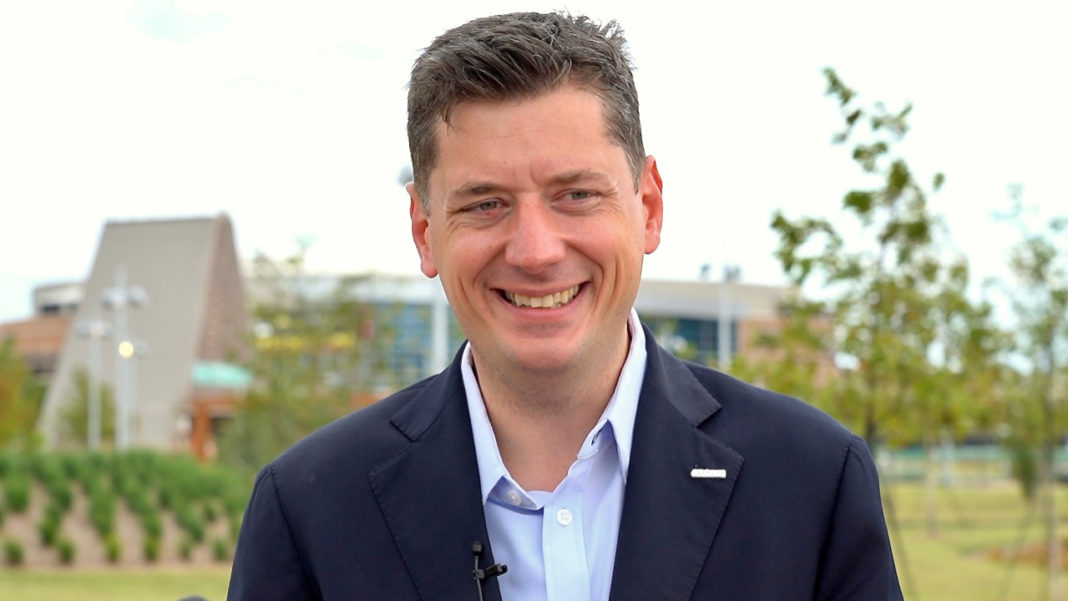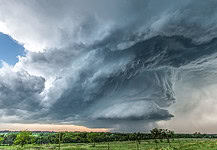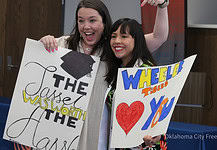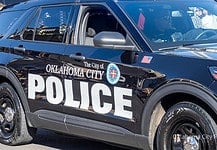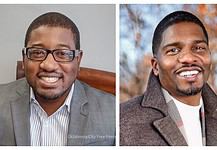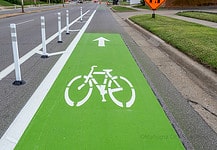Last Updated on February 9, 2022, 8:36 AM | Published: February 9, 2022
OKLAHOMA CITY (Free Press) — Incumbent Oklahoma City Mayor David Holt won re-election Tuesday with 60% of the vote from historic numbers of residents turning out to cast their vote. In all, 60,756 people turned out to vote in the race, the highest since 1959.
And at the end of the evening, Holt praised the electorate in Oklahoma City who “want a nonpartisan mayor that brings people together.”
With all precincts reporting, the percentages were:
- David Holt – 59.81%
- Frank Urbanic – 19.93%
- Carol Hefner – 13.64%
- Jimmy Lawson – 6.62%
Seeking unity
Two of Holt’s strongest opponents on the political far right, Urbanic and Hefner, had attempted to rally the right-wing, anti-government sentiment of certain conservative City voters especially in Cleveland and Canadian Counties. They hoped the anti-mask, anti-science sentiment from measures to respond to the pandemic led by Holt would carry them to victory. But, it was to no avail.
Holt beat Urbanic and Hefner in each of Cleveland and Canadian Counties.
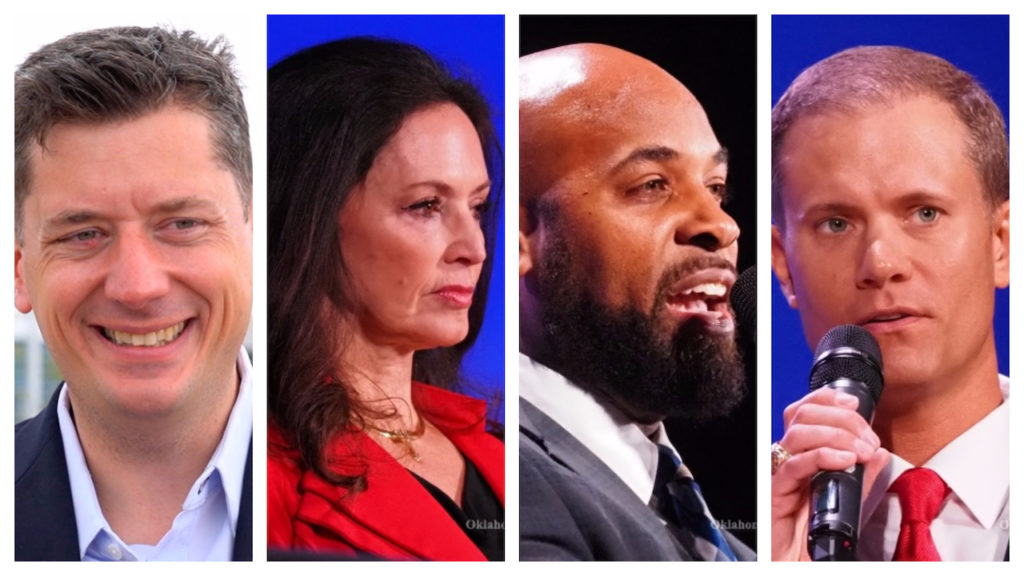
The win gave Holt, whose campaign slogan was “One OKC”, an opportunity to reinforce the political unity of Oklahoma City as a nonpartisan form of government.
“We are not a red city. We are not a blue city. We are not even a purple city. We are Oklahoma City,” said Holt to a cheering crowd of supporters at his watch party.
Later in the evening, Holt talked to Free Press about the win and the significance of nonpartisan local government.
“I think instinctively the voters of Oklahoma City want a nonpartisan mayor that brings people together. I don’t know that they’ve even had to articulate that in the past, because it just comes naturally,” said Holt.
He cited the attempts to make a divisive national political environment “trickle down” to a local race which was ultimately unsuccessful.
“I think we all found the need to really be intentional about protecting what we have here and articulating what we have here,” said Holt.
Reduction of tensions?
Free Press asked Holt if finally getting through this election will help reduce or at least take some brooding tensions off of the table over the ways in which the pandemic and protests in 2020 were handled by him.
“Yes, because for the last few years, some people have been able to say, well, you know, we didn’t agree with the way this community responded to COVID. We didn’t agree with the way this community responded to the murder of George Floyd. And, you know, when the next election comes, we’re gonna show you.”
“That election has come and gone,” Holt continued. “And it was a resounding validation of the things we have done over the last few years. And you can still have those opinions, but you can no longer believe that they are shared by very many other people.”
But, the election did not resolve anything for some. When Free Press contacted Urbanic late in the evening for his response to the election outcome, he had a decidedly more negative response than he gave to The Oklahoman earlier in the evening.
“The majority of voters gave their imprimatur to Holt’s unlawful behavior and abuse of power,” Urbanic wrote to Free Press in a message. “This sends the signal that it’s ok for a mayor to abuse his power and get away with it.”
Urbanic was the attorney for a group of businesses that filed suit against the City and Holt for a mask mandate for businesses within city limits. They questioned whether Holt had the authority to issue the mask mandate. Right before his campaign for mayor started Urbanic filed to drop the lawsuit.
Free Press reached out to Carol Hefner and Jimmy Lawson through Facebook Messenger on their respective campaign pages but did not receive a response by the time of publication. If we get a response after publication we will add updates.
Historic in several ways
According to Holt and The Oklahoman’s archives, the last time this many people voted in a mayoral election was in 1959. Holt said that the only other race that came close to that one and this one was the election of Mayor Patience Latting in the 1970s when around 54,000 votes were cast.
This election was unlike his last election in that four, plus one who dropped out mid-campaign, challenged him for the seat.
It turned out to be a race where over $1.1 million was raised by all candidates according to campaign finance reports, setting a new record.
In addition, Holt told Free Press election night that his opponents together spent $400,000 against him, no doubt making it one of, if not the most expensive challenges to an incumbent in Oklahoma City’s history.
And Holt raised over $800,000 for his own campaign. The final reports on all candidates’ spending will come later.
Broad support
Holt garnered support from a number of different groups and individuals.
Three of the most prominent unions that represent city employees endorsed Holt:
- Fraternal Order of Police Lodge No. 123 representing City of Oklahoma City police officers.
- OKC Fire Fighters, IAFF Local 157 representing City of Oklahoma City firefighters.
- AFSCME, Local 2406, representing various employees of city government.
Also, according to the Holt campaign, over 2,000 individuals went on the record endorsing him.
To learn about each candidate’s campaign, see: The race for Mayor of Okla City — a quick rundown on each candidate
What’s next?
In our conversation with Holt at the evening we asked what are items that need attention over the next 12 months and then longer-term over the next four years.
“We’re going to have important conversations coming up soon about the law enforcement policy taskforce recommendations and Human Rights Commission recommendations,” Holt told us.
In addition, he said that the City would have to find a way to recruit enough new police officers to fill the 120 new positions in the OKCPD that were approved by voters as a part of the 2017 General Obligation Bond.
Holt said that this year will be the first ground-breaking for projects under MAPS 4 which passed with strong support in December 2019. Significantly, he said that each time his campaign has polled voters on MAPS the program has polled very strongly. Holt’s challengers in the campaign took stands against MAPS in a variety of ways.
To learn more, see: MAPS 4 gets largest percentage approval in half-century of sales tax votes
Over an even longer term, Holt pointed to regional transit as a need that has been expressed and circulated among Oklahoma City and the other cities in the larger metropolitan area.
“To have any real impact [the Regional Transit Authority] is going to eventually have to bring the proposal forward to the voters of the five cities that make up the RTA,” Holt said.
We asked Holt if that would be a heavy lift.
“I think it’s a conversation that the community has to have,” said Holt. “We need to go one way or the other.”
Founder, publisher, and editor of Oklahoma City Free Press. Brett continues to contribute reports and photography to this site as he runs the business.
